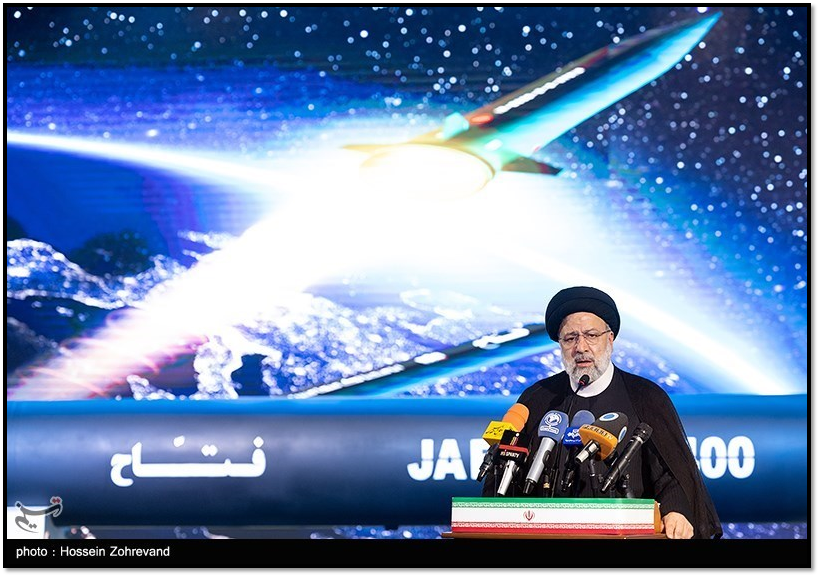June 5
Military: Two U.S. and British warships, the USS McFaul and the HMS Lancaster, responded to a distress call from a large merchant vessel in the Strait of Hormuz, through which 20 percent of the world’s oil transits. Three Revolutionary Guards fast-attack boats had approached the commercial ship. But they departed after the U.S. destroyer and British frigate approached. The incident lasted for about an hour in total.
June 6
Military: The Revolutionary Guards unveiled Iran’s first hypersonic missile, which reportedly has a range of 1,400 kilometers (or 870 miles). The medium-range missile can travel at speeds of up to Mach 15—or 15 times the speed of sound. Iran dubbed it the Fattah, Persian for “conqueror.” Iranian state television claimed that the new missile is capable of “bypassing the most advanced anti-ballistic missile systems of the United States and the Zionist regime, including Israel's Iron Dome.”

Military: Iran had increased its arms shipments to Russia via the Caspian Sea, U.S. officials told Semafor News. NATO forces did not have access to the landlocked lake, the world’s largest.
Sanctions: The United States sanctioned six companies and seven people in Iran, China, and Hong Kong that procured technology and parts for the Islamic Republic’s ballistic missile and military programs. The network was linked to Iran’s Defense Ministry and four affiliated organizations.
Diplomatic: Iran reopened its embassy in Saudi Arabia some seven years after the regional rivals had severed diplomatic relations. "We consider today an important day in the relations between Islamic Republic of Iran and Saudi Arabia," said Iranian Deputy Foreign Minister for Consular Affairs Alireza Bikdeli, at the opening ceremony in Riyadh. "The region will move Inshallah (God willing) towards greater cooperation and convergence to achieve stability, prosperity and progress.”
June 7
Domestic: Iran had implemented new working hours for government employees for the summer to reduce power consumption during peak hours. For three months, the working day was supposed to start at 6 a.m. and end at 1 p.m. Workers, especially those with young children, struggled to adjust to the shift.
Photo Credits: Tasnim News Agency (CC BY 4.0)
